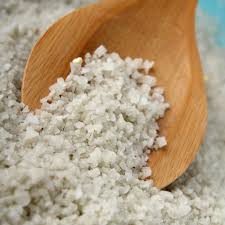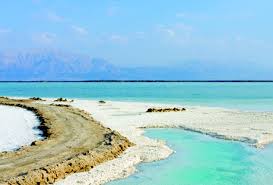For years we have been avoiding salt. Even those of us not suffering from heart disease or any other disease. Because we’ve been told, rather its been beaten into us that excessive salt is bad for health.
But studies are increasingly showing that low-salt diets are not only ineffective in affecting heart health, but are actually hazardous to our overall health.
In 2011, a health study reported in Journal of American Medical Association found that those who ate less salt were the most likely to die from heart disease — five times more likely, in fact, than those with the highest salt intake.
A study published in the journal AMJ Hypertension found that restricting salt can promote diabetes and heart disease.
“In fact, research studies have routinely found that sodium significantly improves insulin function. According to one study, ‘an abundant sodium intake may improve glucose tolerance and insulin resistance, especially in diabetic salt-sensitive, and/or medicated essential hypertensive subjects.’”
According to Dr. W.C. Douglas, a low-salt diet is deadly. He reported in his May 27, 2011 newsletter “Daily Dose” that “one study found that seniors with the lowest salt consumption had the highest risk of bone breaks and early death.”
In the book “Salt Your Way to Health,” David Brownstein, M.D., states: “Researchers studied the relationship between a low sodium diet and cardiovascular mortality. Nearly 3,000 hypertensive subjects were studied. The result of this study was that there was a 430% increase in myocardial infarction (heart attack) in the group with the lowest salt intake versus the group with the highest intake.”
Why? He says that low-sodium diets predispose one to having a heart attack because of multiple nutrient deficiencies of minerals, potassium and B vitamins.
We now have some more data on salt’s actual benefits. A study in the March 3 issue of Cell Metabolism shows that dietary salt helps the body defend against microbes. In other words, it helps with immunity.
Which salt to use? Instead of refined salt from the grocery store, prefer sea salt, which contains 17 minerals. Unrefined natural sea salt is different from common table salt, which is chemically treated and stripped of minerals such as calcium, magnesium and potassium.
Not only does natural sea salt add flavor to your favorite foods, but it can also help with many different health conditions. According to the book “Water & Salt, The Essence of Life” by Barbara Hendel, sea salt has been shown to:
Help reduce your tissue acidity .
Help stabilize irregular heartbeats.
Balance blood sugar levels.
Revitalize nerve cell communication with your brain.
Help with the absorption process in your intestinal tract.
Prevent muscle cramps.
When shopping for sea salt, be sure that it has not been refined or boiled to produce the crystals. The sea salt should be harvested and allowed to dry by evaporation in order to be labeled “natural.”
Also other salts such as Himalayan ‘kala namak’ are healthy choices.
Be Healthy. And Stay Healthy.


